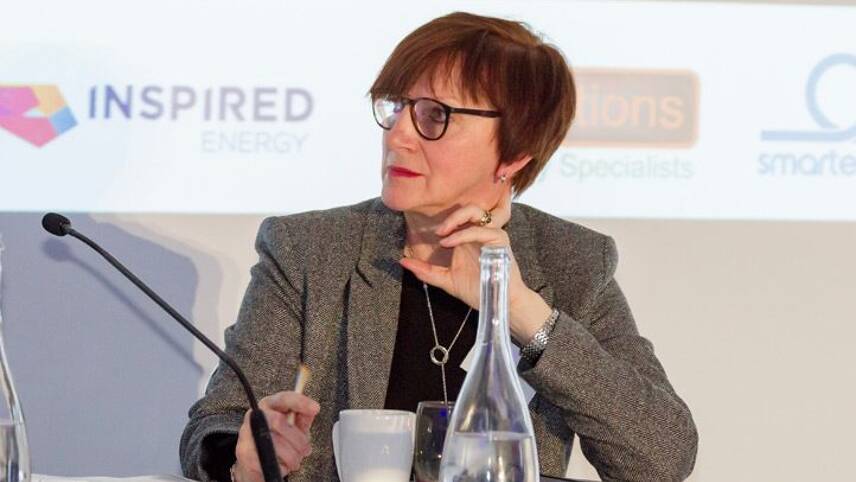Register for free and continue reading
Join our growing army of changemakers and get unlimited access to our premium content
Delivering a rousing keynote speech at edie’s SPARK 2.0 energy event in Birmingham on Wednesday (6 November), Skorupska called on businesses to take advantage of the “burgeoning flexibility” market that would enable energy managers to improve the business case for clean energy procurement in a way that is economically attractive for boards.
Skorupska congratulated delegates from UK businesses in the audience for being “world leaders” in spurring demand for renewable energy through their own decarbonisation strategies, but noted the need for businesses to do more than “dip their toe” into the net-zero transition.
During the speech, Skorupska claimed that net-zero strategies were essential in ensuring that businesses, local authorities and the UK Government didn’t just treat notions of climate emergencies as greenwash and that it spurred tangible change.
READ: What is a climate emergency?
From a business perspective, several of the UK’s largest corporates have also set their own pre-2050 net-zero or 1.5C targets, including the likes of BT, Skanska UK, Ecotricity and Aldi UK and Ireland. This trend can be seen across the global business community too, with modular flooring firm Interface, engineering and electronics giant Bosch and container shipping giant Maersk among the global cohort of so-called “zeronauts”.
Businesses from all sectors and of all sizes have also been aiming to drive change outside of their own operations by lobbying the UK Government to legislate for net-zero. A coalition of 128 UK-based businesses, industry networks and investors wrote to Ministers demanding that a net-zero target for 2050 is legislated “immediately” and were told such moves would be made “in a timeframe which reflects the urgency of the issue”.
However, Skorupska argued that businesses could go a lot further in accelerating the transition to a green economy that created new jobs, not just in the energy sphere, but also by unlocking low-carbon technologies that would end up shaping future policies.
Skorupska asked businesses to look beyond electrification in the areas that have been traditionally hard to decarbonise, such as heat and transport. The REA’s Bioenergy in the UK – vision to 2032 and beyond report, released in June outlines how bioenergy, for example, can be utilised to help the UK reach its fourth and fifth carbon budgets.
According to the report, technologies such as modern biomass boilers, biofuels and anaerobic digestion can create an affordable means to provide instant carbon reductions in areas such as heat and transport – sectors which have been notoriously difficult to decarbonise.
Net-zero manifesto
Skorupska claimed there was a “mountain to climb” to change public perceptions on the rapid need to decarbonise, but noted the roles that Greta Thunberg and Sir David Attenborough had played in creating a general public that was demanding sustainable change from business.
That public perception is likely to have impacts on the upcoming election. In fact, a recent poll found that the majority of the UK public will be influenced by climate change in how they vote during the December general election and the REA is urging all political parties to adopt five manifesto pledges or risk missing the UK’s legally binding net-zero targets.
The REA has issued a five-point manifesto that urges political parties to ensure that funding and planning need to decarbonise is a central consideration of the Prime Minister and the Cabinet Office through an independent body with the ability to enforce Government to act on decarbonisation.
The manifesto additionally calls for renewable energy and clean technology to be central to a Net Zero Treasury, the reformation of Ofgem to ensure energy network operators modernise energy systems, support for local authorities to reach net-zero through ring-fenced funding, and delivering a just transition to developing a workforce that takes high-quality skilled workers from the fossil fuel sector into new green jobs across the UK.
Matt Mace



Please login or Register to leave a comment.